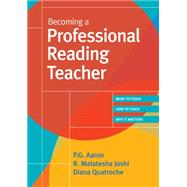
| About the Authors | p. vii |
| Preface | p. ix |
| Acknowledgments | p. xii |
| The Psychology and Psycholinguistics of Literacy Skills | |
| Introduction to Literacy Skills and Their Acquisition | p. 3 |
| What Are Literacy Skills? | |
| When Are Literacy Skills Acquired? | |
| Do All Children Acquire Reading Skills at the Same Rate? | |
| What Factors Influence the Acquisition of Literacy Skills? | |
| The Component Model of Reading | |
| The Psychology of Reading and the History of Literacy Instruction in the United States | p. 41 |
| The Psychology of Reading | |
| History of Literacy Instruction in the United States | |
| Approaches to Literacy Instruction: Today's Major Players | |
| The Psycholinguistics of Spoken Language | p. 71 |
| The Importance of a Knowledge of Linguistics | |
| Linguistics and Psycholinguistics | |
| Components of Spoken Language | |
| The Influence of Language on Reading and Writing Skills | |
| The Psycholinguistics of Written Language | p. 97 |
| Basic Concepts Involved in the Study of Writing Systems | |
| Origins and History of Writing Systems | |
| Written Language Is as Natural as Spoken Language | |
| Written Language Is Not Merely Speech Written Down | |
| The Influence of Written Language on Spoken Language | |
| Development of Spoken and Written Language Skills | p. 119 |
| Prereading Skills: Print Awareness, Emergent Literacy, and Invented Spelling | |
| Developmental Sequence of the Components of Spoken Language | |
| Literacy Instruction and Teaching Strategies | |
| Developing Basic Literacy Skills | p. 139 |
| Major Approaches to Beginning Literacy Instruction | |
| Promoting Listening Comprehension Skills in Preschoolers | |
| Strategies for Fostering Print Awareness | |
| Strategies for Developing Phonological Awareness | |
| Strategies for Developing Phonemic Awareness | |
| Strategies for Introducing the Alphabetic Principle | |
| What Does the Research Say? | |
| Strategies for Developing Decoding, Instant Word Reading, and Spelling Skills | p. 157 |
| Strategies for Developing Decoding and Word Recognition Skills | |
| Instant Word Reading and Fluency | |
| Instructional Programs for Teaching Children at Risk | |
| Strategies for Promoting Spelling Skills | |
| Strategies for Developing Vocabulary Knowledge, Comprehension Skills, and Writing Skills | p. 189 |
| Encountering Words | |
| Remembering Words | |
| Promoting Reading Comprehension | |
| Promoting Writing Skills | |
| Reading Disability and Attention-Deficit/Hyperactivity Disorder | p. 221 |
| Reading Disability: Medical Focus | |
| Learning Disability: Educational Focus | |
| Instructional Methods for Learning Disability | |
| Inconsistent Attention as a Source of Reading Difficulties | |
| Assessment in Literacy Instruction | |
| Testing and Assessment of Literacy Skills | p. 245 |
| Testing and Assessment: What Is the Difference? | |
| Controversy Over Testing | |
| Tests | |
| Assessment | |
| References | p. 271 |
| Appendices | |
| Glossary | p. 297 |
| Review of Selected Basal Readers | p. 307 |
| Technology Assistance and Computer Use in Literacy Instruction | p. 311 |
| Author Index | p. 321 |
| Subject Index | p. 329 |
| Table of Contents provided by Ingram. All Rights Reserved. |
The New copy of this book will include any supplemental materials advertised. Please check the title of the book to determine if it should include any access cards, study guides, lab manuals, CDs, etc.
The Used, Rental and eBook copies of this book are not guaranteed to include any supplemental materials. Typically, only the book itself is included. This is true even if the title states it includes any access cards, study guides, lab manuals, CDs, etc.